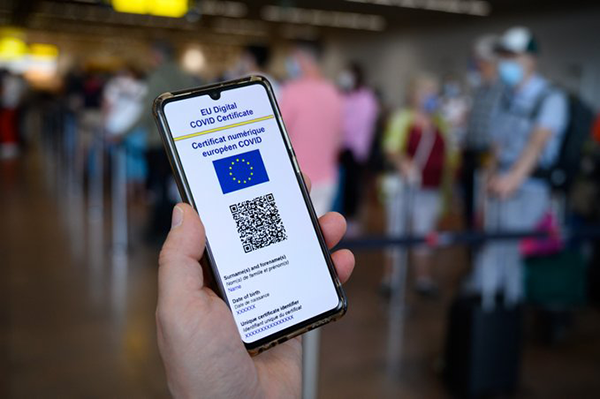Travels from European Union and European Economic Area countries can now fly to Sweden without worrying about COVID-related travel restrictions.
Sweden has lifted all COVID-related entry restrictions for travelers flying in from neighboring Nordic countries and other European Union (EU) and European Economic Area (EEA) countries. However, with some exceptions, existing restrictions on travelers coming from other countries will remain until March 31.
Sweden’s entry rules changed on Wednesday
From Wednesday, February 9, travelers from the EU, Norway, and Iceland can now fly into Sweden without showing proof of vaccination status or a negative test result. The relaxation of entry rules follows Sweden unwinding many of its movement and association restrictions within the country.
“Entry regulations will now revert to the regulations in place during normal circumstances in regards to requirement to hold a valid travel document and potential visa, max length of stay, and the right to free movement within EU/Schengen area,” updated information provided by the Swedish Police says.
The Swedish Government says the decision is part of its continuing work to phase out the infection control measures. Last week, nearby Denmark became the first EU country to lift almost all COVID restrictions. Norway quickly followed Denmark’s lead.
“The decision follows an assessment by the Public Health Agency of Sweden that the entry restrictions are no longer a proportionate infection control measure. The decision enters into force on February 9,” a Swedish Government statement reads. “The lifting of the entry restrictions is a great relief for many travelers, not least for those living and working in the Nordic border regions.”
Good news for Sweden’s airports
Sweden’s airports will welcome the relaxation of entry rules. Swedavia Group owns and operates ten airports across Sweden, including Stockholm’s Arlanda Airport. Swedavia says Arlanda Airport hosted 733,000 passengers in January – a decrease of 59% compared to January 2019.
“The easing of restrictions in Sweden as of February 9 and in a number of other European countries bodes well for increased travel going forward, especially with the annual winter break and Easter holidays approaching, since there is great pent-up demand for travel,” a statement from Swedavia says. “Now that restrictions are being eased across Europe, we anticipate that the recovery will gather new momentum.”
In total, 1.1 million passengers moved through Swedavia’s ten airports in January. Of that number, 786,000 were international passengers, and most of those travelers went to or arrived from other European countries. Swedavia expects those numbers will now rise, especially with Easter and the northern summer season approaching.
Obstacles remain for long-haul travel to Sweden
But passenger numbers from further afield remain low, and no immediate relief is on the horizon. Sweden’s travel ban on non-EU/EEA citizens and residents remains in place until the end of March. That ban aligns with EU recommendations regarding entry from third countries.
However, the “ban” is rather loose and far less strict than bans in place elsewhere. Sixteen non-EU/EEA countries are on an exempt list assuming travelers from those countries can present evidence of vaccination status and proof of a negative test result with 72 hours of travel.
Travelers fully vaccinated in one of approximately 30 non-EU/EEA countries at least 14 days before flying to Sweden can also enter relatively trouble-free. These loopholes are in addition to a raft of exemptions for minors, students, military personnel, skilled and essential workers.
The ban on non-EU/EEA travelers might be porous, but it is also complex and confusing. It deters all but the most determined long-haul travelers to Sweden. EU/EEA-based travelers may be free to come and go from Sweden, however, local media say no changes are anticipated regarding travel from further afield before the current March 31 date.
About Guide2Uganda
Guide2Uganda (www.guide2uganda.ug) is the most comprehensive source of travel information about Uganda that exists on the web, with more content on its cities & towns, accommodation, attractions, events, museums and galleries than any other online guide that currently exists for Uganda; as well as being a dynamic travel news and events driven site with fresh content added daily.
According to WeFollow & Peer Index (that measure online influence), we are among the most influential online media organizations in Uganda. Guide2Uganda was also awarded ‘’Best Destination Website in Uganda’’ by Jumia Travel Uganda in the 2018 Africa Travel Awards.
Share your travel stories & photos with the world via email: info@guide2uganda.ug




